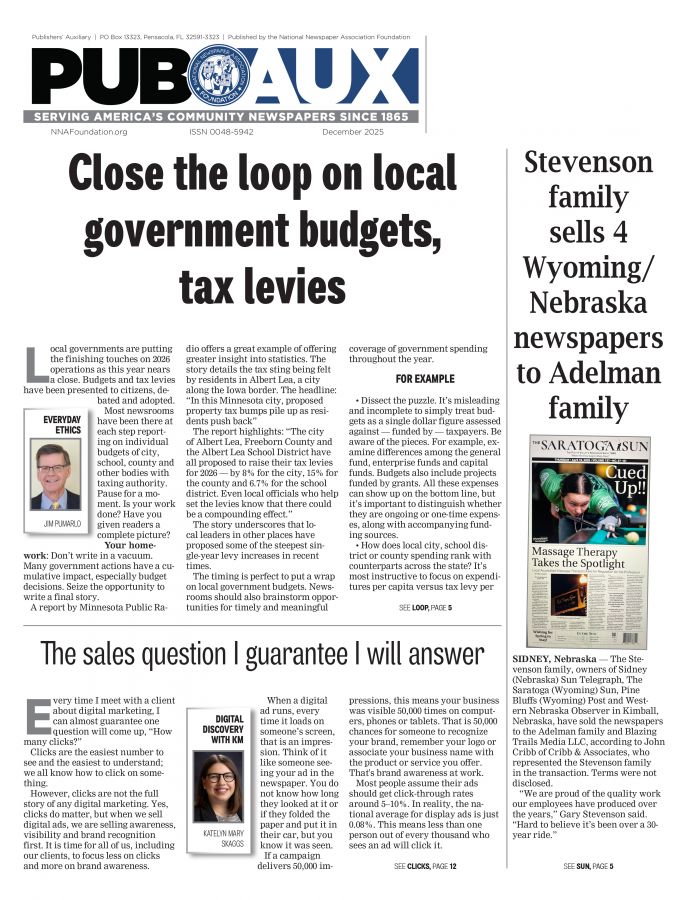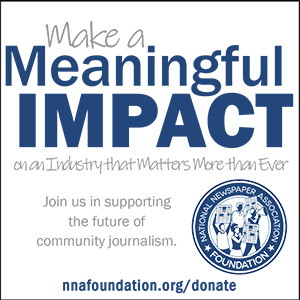In crisis times, balancing safety and freedom
First Five by the Freedom Forum Institute
Mar 19, 2020
By Lata Nott
Download Word doc here.
In times of crisis, safety and freedom may seem like they’re at odds with each other. A society that respects individual liberty can’t implement the same kinds of drastic laws and policies that a more authoritarian one can.
This puts more of an onus on citizens of a democracy to make responsible choices. As we face a virus that we can easily pass on without realizing it, that may not cause any symptoms in those who are young and healthy but is potentially deadly to the elderly and those with preexisting conditions, we need to keep in mind that our independent media and civil society can be assets in this fight, as long as we balance our personal freedoms with care and compassion for each other.
As I write this column, 7,038 people have tested positive for COVID-19 in the United States. The highly contagious nature of the virus has led Ohio to postpone its presidential primary, Washington and Maryland to shut down all restaurants and bars (except for delivery and takeout) and California to call for all people 65 and older to shelter inside their homes. More than 30 states have closed their schools. On Sunday, the Centers for Disease Control and Prevention recommended that no gatherings of 50 people or more be held in the U.S. for the next eight weeks. On Monday, it amended that warning to apply to gatherings of more than 10 people. I’m certain that by the time you read this, there will be more cases of COVID-19, as well as more shutdowns, both voluntary and mandated by state and local officials.
All of this was unimaginable last week. Just last month, the coronavirus seemed like a rather distant problem, even though the first confirmed case in the U.S. occurred in late January. We had several weeks to observe China’s handling of COVID-19 and at first, a lot of our conversations had a tone of reluctant admiration for how swiftly an authoritarian government could act in the face of an outbreak. In a matter of days, the Chinese government had quarantined entire cities, suspended travel, closed schools and businesses and built two new specialized hospitals. What democracy could match that?
It didn’t take long for the truth to come to light. Not that the Chinese government had been censoring information and violating civil liberties — that was sort of a given — but that censoring information and violating civil liberties actually made the outbreak worse. China’s suppression of news about the outbreak prevented health care practitioners and individuals from being able to take appropriate precautions and hindered officials from being able to coordinate a response. As this personal essay from an anonymous resident of Wuhan put it, “Before this coronavirus, I always thought it was OK to sacrifice some level of democracy and freedom for better living conditions. But now I have changed my attitude. Without democracy and freedom, the truth of the outbreak in Wuhan would never be known.”
Of course, now that it’s our turn to deal with the virus, it’s hard to argue that we’re doing much better. For weeks, the Trump administration downplayed the severity of the situation, contradicting public health experts and news media reports and delaying containment and mitigation efforts. According to The Washington Post, early problems with manufacturing coronavirus tests, “along with an initial decision to test only a narrow set of people and delays in expanding testing to other labs, gave the virus a head start to spread undetected — and helped perpetuate a false sense of security that leaves the United States dangerously behind.” Officials in China are reportedly watching our mishandling of the outbreak with a “mix of shock and pleasure. They find it hard to believe that the world’s top superpower might be bungling its response to the virus, even after having had weeks to prepare for its possible arrival.”
As the national security law blog Lawfare has pointed out, many observers are using the coronavirus as a proxy war for democracies versus authoritarian systems. This is, of course, an oversimplification, but it does highlight an important truth — civil liberties do have an impact on how governments deal with crises. Our freedoms of press and speech ensure the free flow of information, but they also allow misinformation to spread. And while South Korea, a fellow democracy but one with less regard for civil liberties, was able to curtail its COVID-19 outbreak by forcibly shutting down a series of churches where the virus initially spread, it’s hard to imagine an American government official doing the same. Such an action, “might register to many Americans as an egregious violation of basic First Amendment instincts regarding the freedom of religion, right to assemble and separation of church and state.”
Our state, city and federal officials do have the power to place people in isolation or quarantine, but that power is tempered by the Constitution (the government cannot confine people arbitrarily and without adequate explanation) and by the norms of our society (the impact on liberty means that these are considered measures of last resort). Officials in the U.S. are more likely to recommend that people voluntarily practice social distancing. And even when they do make some aspects of this behavior compulsory, these policies aren’t nearly as draconian as they would be in an authoritarian system. When Ohio Gov. Mike DeWine ordered bars, restaurants and recreation centers closed, he added, “we hope that Ohioans will follow this advice. Just as with every other law or rule, you can’t enforce it every time.” Compare this to language a Chinese party committee used to discourage citizens from hiding infections: “Whoever deliberately delays or conceals reporting for the sake of their own interests will be forever nailed to history’s pillar of shame.”
Our democratic approach means that we run the risk of our citizens not taking the warnings seriously. Former New Jersey Gov. Chris Christie observed on Monday that, “There are still too many Americans going out to restaurants, bars and other public areas as if this is business as usual.” In a way, this is the cost of our freedoms. We’ve been advised, whether we are healthy or ill, to practice social distancing, by minimizing contact with other people, limiting nonessential travel, working from home and avoiding gatherings. But for most of us, this isn’t a mandate. Instead, it’s a choice we make — every time we cancel plans, stay in our homes and forego human contact for another day. These decisions might not make much of a difference to your personal health and safety, but can have an outsized impact on the health and safety of others. As the director of the National Institutes of Health, Francis Collins, has said, “I think we as a nation have to get into a place of not just thinking about ourselves, but thinking about everybody else around us, and particularly the most vulnerable people — those who are older and those people with chronic diseases. Young people may have a relatively low risk of serious illness, kids seem to have a very low risk, but if you want to avoid what could be the deaths of hundreds of thousands of people, then it is incumbent on all of us to severely limit our social interactions. We need to ask the question about every interaction we have and whether it is necessary or not.”
It can be quite daunting to realize that flattening the curve — slowing the rate of new infections in order to buy researchers more time to develop vaccines and give hospitals some respite — is a responsibility that falls on all of us as individuals. But the thing about democracies is that they’re fundamentally optimistic about human nature. We give people civil liberties, knowing full well that some will abuse those rights, because we expect that, on the whole, most will use them wisely. We protect heinous speech, false information and pointless assembly from government crackdowns because we don’t want to risk infringing on valuable speech, information and assembly — and with that there is an inherent assumption that it’s worth it, that the good outweighs the bad.
There is no requirement that you exercise your freedoms responsibly, but the fact that you have them reflects the underlying belief that you will.
Lata Nott is a Freedom Forum Fellow. Contact her via email at lnott@freedomforum.org, or follow her on Twitter at @LataNott.









